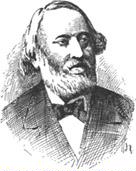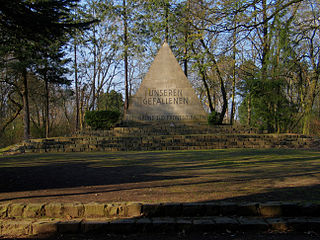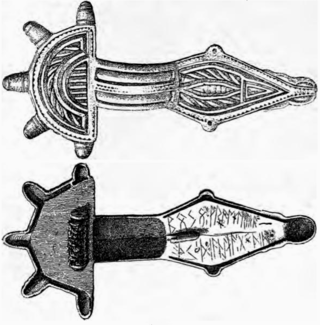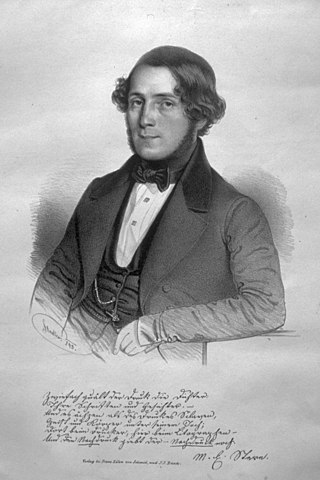
Fritz Mauthner was an Austrian novelist, theatre critic and satirist. He was an exponent of philosophical scepticism derived from a critique of human knowledge and of philosophy of language.

Georg Anton Lorenz Diefenbach was a German philologist and lexicographer, as well as a novelist associated with the German Nationalist movement. By career he was a pastor, like his father, and a librarian.

David Cassel was a German historian and Jewish theologian.
Abraham Lewinsky was a late nineteenth to early twentieth century German rabbi. He was born on 1 March 1866 in Loslau, Upper Silesia, Kingdom of Prussia. He studied at the University of Breslau from 1884 to 1887, obtaining a (Ph.D.), while pursuing his rabbinical studies at the Jewish Theological Seminary in Breslau. In 1890 he became rabbi to Weilburg, and two years later assumed leadership as land rabbi of the Land Rabbinate of Hildesheim in the Province of Hanover, retiring in 1935. He died on 18 December 1941 in Mainz, People's State of Hesse.

Abraham (Adolf) Berliner was a German theologian and historian, born in Obersitzko, in the Grand Duchy of Posen, Prussia. He received his first education under his father, who was teacher in Obersitzko. He continued his education under various rabbis, preparing himself at the same time for the University of Leipzig, where he received the degree of doctor of philosophy.
Walter Frank, also known by the pseudonym Werner Fiedler was a Nazi historian, notable for his leading role in anti-Semitic research.

The Reich Federation of Jewish Front-Line Soldiers was an organization of German-Jewish soldiers founded in February 1919 by Leo Löwenstein in the aftermath of World War I to demonstrate Jewish loyalty to the former German Empire and German nationalism.

Meyer Kayserling was a German rabbi and historian.
Jüdischer Kulturbund, or Der Jüdische Kulturbund, was a Cultural Federation of German Jews, established in 1933. It hired over 1300 men and 700 women artists, musicians, and actors fired from German institutions, and grew to about 70,000 members, according to some authors. Saul Friedländer speaks of at least 180,000.
The belagines were written laws which, according to Jordanes, were given to the Goths by Dicineus / Dekaineos, the Dacian-Getic legislator, Zalmoxian priest at the time of Burebista.

The Frei-Laubersheim fibula is a silver-gilt bow-style fibula found in Frei-Laubersheim, Bad Kreuznach (Rhineland-Palatinate) in 1872. The grave in which it was found dates to approximately the 6th century, and was that of a presumably Frankish woman. The fibula is one of a pair, and bears a runic inscription in the Elder Futhark.

Arno Nadel was a Lithuanian musicologist, composer, playwright, poet, and painter.
An estimated 100,000 German Jewish military personnel served in the German Army during World War I, of whom 12,000 were killed in action. The Iron Cross was awarded to 18,000 German Jews during the war.
Leonhard Schultze-Jena was a German explorer, zoologist, and anthropologist known for his explorations of German Southwest Africa and New Guinea, as well as for his studies on Mesoamerican languages.
Elmar Seebold is a German philologist who specializes in Germanic philology. From 1971 to 1983, Seebold was Professor of Germanic philology at the University of Fribourg. He then transferred to the Ludwig Maximilian University of Munich. Seebold retired from the University in 1999. He is the editor of the Etymological Dictionary of the German Language.
Jüdische Rundschau was a Jewish periodical that was published in Germany between 1902 and 1938. It was the biggest Jewish weekly publication in Germany, and was the organ of the Zionist Federation of Germany.
Willy Krogmann was a German philologist who specialized in Germanic studies.

Max Emanuel Stern, also known as Mendel b'ri Stern, was a Hungarian-born Hebraist, writer, poet, and translator.

Max Alfred Lehmann, better known by his artist name Alred Lemm, was a German expressionist narrator, pacifist and essayist, who in many of his writings campaigned for a renewal of Judaism in Germany by turning to Eastern Judaism according to Martin Buber.

Albert Katz, also known by the pen name Ish ha-Ruaḥ, was a Polish-born rabbi, writer, and journalist.










